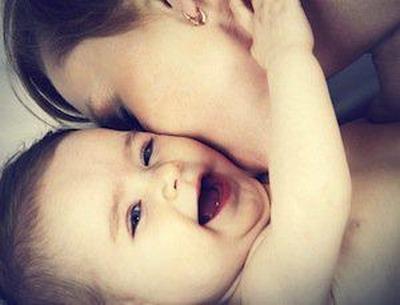Free Initial Consultations
 630-580-6373
630-580-6373With offices in Naperville, Joliet, Wheaton, Plainfield & Chicago
 When a child is born and the parents are not married, it is important for both parents to establish paternity. By establishing paternity, a child’s biological father is recognized as the legal father, with the rights and responsibility the law provides.
When a child is born and the parents are not married, it is important for both parents to establish paternity. By establishing paternity, a child’s biological father is recognized as the legal father, with the rights and responsibility the law provides.
Under Illinois law, there are several ways to establish paternity. Unfortunately, the system may be manipulated to force a man, other than the biological father, to assume responsibility for a child.
How to Establish Paternity
Illinois allows parents to establish paternity in four different ways:
 Moving to a new city or state for a new job, or just to be closer to family is a decision many people make without a second thought. However, if you have a custody order, then you may not be able to simply pick up and move. You may first have to get the permission of the court.
Moving to a new city or state for a new job, or just to be closer to family is a decision many people make without a second thought. However, if you have a custody order, then you may not be able to simply pick up and move. You may first have to get the permission of the court.
Order of Removal
Under the law, prior to January 1, 2016, a parent with primary custody of a child could not move out of state without first getting an order of removal from the court authorizing the move. A parent could, however, move anywhere in Illinois without court approval.
One of the family law changes that goes into effect January 1, 2016 changes this rule. The new rule looks at the distance involved in the move instead of just considering moving across state lines.
If the child lives in Cook, DuPage, Kane, Lake, McHenry, or Will counties, then the parent can move anywhere within 25 miles without the permission of the court. If the parent wants to move outside of Illinois, so long as the new residence is within 25 miles of the old residence, then no court permission is needed. In the other counties a parent could move with a child up to 50 miles away without seeking an order of removal.
 Child custody and visitation are some of the most difficult issues to resolve in a divorce or separation. Sometimes a court enlists in the help of a Guardian Ad Litem (GAL) to provide unbiased information and opinion to help resolve the dispute. If a court appoints a GAL, then both parents must understand the GAL’s role and how they may impact their child custody case.
Child custody and visitation are some of the most difficult issues to resolve in a divorce or separation. Sometimes a court enlists in the help of a Guardian Ad Litem (GAL) to provide unbiased information and opinion to help resolve the dispute. If a court appoints a GAL, then both parents must understand the GAL’s role and how they may impact their child custody case.
What is a Guardian Ad Litem?
Using Illinois law, a court may appoint a GAL to assist in child custody disputes. When a GAL is appointed to investigate a child custody dispute, they are looking to ensure the best interests of the child. The GAL will speak with people involved in the child’s life. This includes parents, grandparents, siblings, aunts/uncles, and even the child’s teachers and doctors. Most importantly the GAL will talk with the child.
 Divorce is one of the most turbulent times anyone may experience. It can drain a person both emotionally and financially. As unpleasant as divorce can be, there are many factors that further complicate the decision to initiate a divorce. These factors include fear about splitting assets, child custody disputes, and determining alimony payments. Factoring in a spouse with a substance abuse problem can make the decision to divorce more difficult than usual.
Divorce is one of the most turbulent times anyone may experience. It can drain a person both emotionally and financially. As unpleasant as divorce can be, there are many factors that further complicate the decision to initiate a divorce. These factors include fear about splitting assets, child custody disputes, and determining alimony payments. Factoring in a spouse with a substance abuse problem can make the decision to divorce more difficult than usual.
Factors to Consider
When considering whether or not to divorce a spouse with a substance abuse problem, many emotions may begin to surge. Many spouses feel guilty and feel that they are abandoning their partner. However, there are several factors you will want to consider when making a decision about your marriage and how to deal with your spouse’s addiction. These factors include:
 A child’s feelings and attitudes towards their parents change over time. These changes can be influenced by changes at school in a child's social groups and by his or her experiences surrounding the divorce of a child's parents. In some cases, certain changes can support a custody or visitation modification. To be sure, mistreatment by a parent or stepparent can support a change in custody. The same can be said for illegal activities or activities that endanger the child, like drug or alcohol abuse.
A child’s feelings and attitudes towards their parents change over time. These changes can be influenced by changes at school in a child's social groups and by his or her experiences surrounding the divorce of a child's parents. In some cases, certain changes can support a custody or visitation modification. To be sure, mistreatment by a parent or stepparent can support a change in custody. The same can be said for illegal activities or activities that endanger the child, like drug or alcohol abuse.
However, what if the child simply does not like to spend time with one parent? In this case, can the child choose to simply live with or spend more time with the other?
What if We Just Do Not Get Along?
The parent-child relationship is not always perfect, and often, especially during adolescent years, the child may simply not like his or her parents. Or, the child may get along well with one but not the other. This raises one question: how much can your child’s preference factor into visitation and custody decisions? In reality, your child’s preferences are important but do not ultimately determine child custody and visitation.
 Deciding child custody and visitation can be complex for divorcing parents. This is particularly true if you did not choose your custody and visitation arrangement or would like a change in custody. Whether you have agreed to your child custody arrangements or a court ordered it, it is still important to understand the basics of custody and visitation according to state law.
Deciding child custody and visitation can be complex for divorcing parents. This is particularly true if you did not choose your custody and visitation arrangement or would like a change in custody. Whether you have agreed to your child custody arrangements or a court ordered it, it is still important to understand the basics of custody and visitation according to state law.
Parents Have a Right to Reasonable Visitation
Under Illinois law as it currently stands, non-custodial parents are entitled to reasonable visitation. Generally, courts prefer that children have some contact with both parents and do not prefer to restrict visitation rights. In most cases, courts only restrict a parent’s visitation if they believe that a parent will pose a danger to the child. This does not mean that visitation is unlimited or without structure. Visitation must be reasonable for both parents.
 You should not live in fear of another person. If you are divorcing or separating from your partner and he or she is harassing or abusing you, you may be able to request an order of protection to protect yourself from further harm.
You should not live in fear of another person. If you are divorcing or separating from your partner and he or she is harassing or abusing you, you may be able to request an order of protection to protect yourself from further harm.
An order of protection provides a set of rules detailing how an individual can interact with the individual who requested the order. It is against the law for the other person to violate the order. If you are living with abuse, you should not hesitate to contact an experienced attorney for help with your situation.
Types of Orders of Protection
Under the Illinois Domestic Violence Act, there are three different types of protection orders available to domestic violence victims:
 There are not many issues in a divorce that are as difficult as deciding which parent a child will live with post divorce. Even after a court has decided child custody and visitation, one parent may want to request changes to custody throughout the child’s youth. There are several reasons why a noncustodial parent would want to seek a change in custody; such reasons may include:
There are not many issues in a divorce that are as difficult as deciding which parent a child will live with post divorce. Even after a court has decided child custody and visitation, one parent may want to request changes to custody throughout the child’s youth. There are several reasons why a noncustodial parent would want to seek a change in custody; such reasons may include:
Whatever the reasons are for wanting a change in child custody, modifying a child custody order involves more than demonstrating who is the better parent.
The Child’s Best Interests
 One of the most difficult things to deal with is an allegation of domestic violence in the middle of a family law case. Because judges rightfully take domestic violence claims seriously, even unfounded allegations can drastically affect the way a family law case moves forward. Sometimes, even parenting time is cut off. If you are the subject of domestic violence allegations, you need to understand your rights.
One of the most difficult things to deal with is an allegation of domestic violence in the middle of a family law case. Because judges rightfully take domestic violence claims seriously, even unfounded allegations can drastically affect the way a family law case moves forward. Sometimes, even parenting time is cut off. If you are the subject of domestic violence allegations, you need to understand your rights.
Types of Allegations
There are several different types of domestic violence allegations. If one party accuses the other of abuse in a court filing or during testimony, the court will have to consider what proof is available to support these claims. While these allegations will be taken seriously, they are often given less credence than other types of allegations.
When criminal charges have been filed, or an Order of Protection has been issued, judges will usually not allow the accused parent to have any parenting time until either the allegations have been fully dealt with in other court cases or arrangements are made to protect the children.
 Many people are under the mistaken impression that prenuptial agreements, or “prenups,” are only for people who enter into a marriage with significant personal assets, or who stand to inherit substantial assets at a later date. While it certainly is the case that wealthy people often use prenuptial agreements to protect assets in the event of a divorce, these types of agreements can also greatly benefit people who may have more modest means. For this reason, it is very important for anyone considering getting married to discuss how a prenuptial agreement may be able to help them with an experienced lawyer.
Many people are under the mistaken impression that prenuptial agreements, or “prenups,” are only for people who enter into a marriage with significant personal assets, or who stand to inherit substantial assets at a later date. While it certainly is the case that wealthy people often use prenuptial agreements to protect assets in the event of a divorce, these types of agreements can also greatly benefit people who may have more modest means. For this reason, it is very important for anyone considering getting married to discuss how a prenuptial agreement may be able to help them with an experienced lawyer.
How can prenups be beneficial? Future spouses will find that a prenuptial agreement can provide a host of different benefits.
Help avoid costly disputes in the event your marriage ends in divorce. Divorce can result in significant disputes regarding the way in which assets will be divided and whether either party will be entitled to maintenance (alimony). In the absence of an agreement, Illinois law controls the division of assets and maintenance, which may result in an arrangement that is not to your liking. In many cases, litigating these issues or even resolving them through alternative dispute resolution techniques can be extremely time-consuming and costly. By agreeing to the way these matters will be resolved via a prenup, both parties can save the expense of a dispute in the event of divorce.
